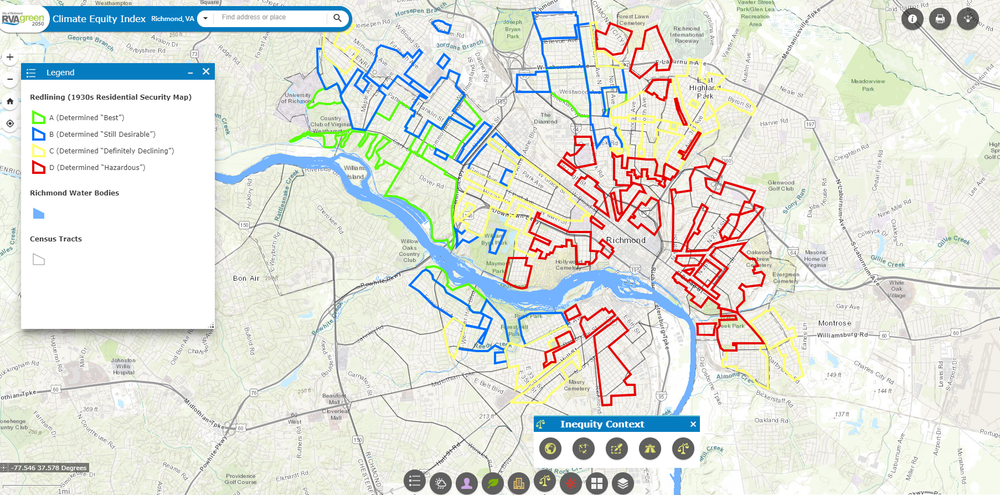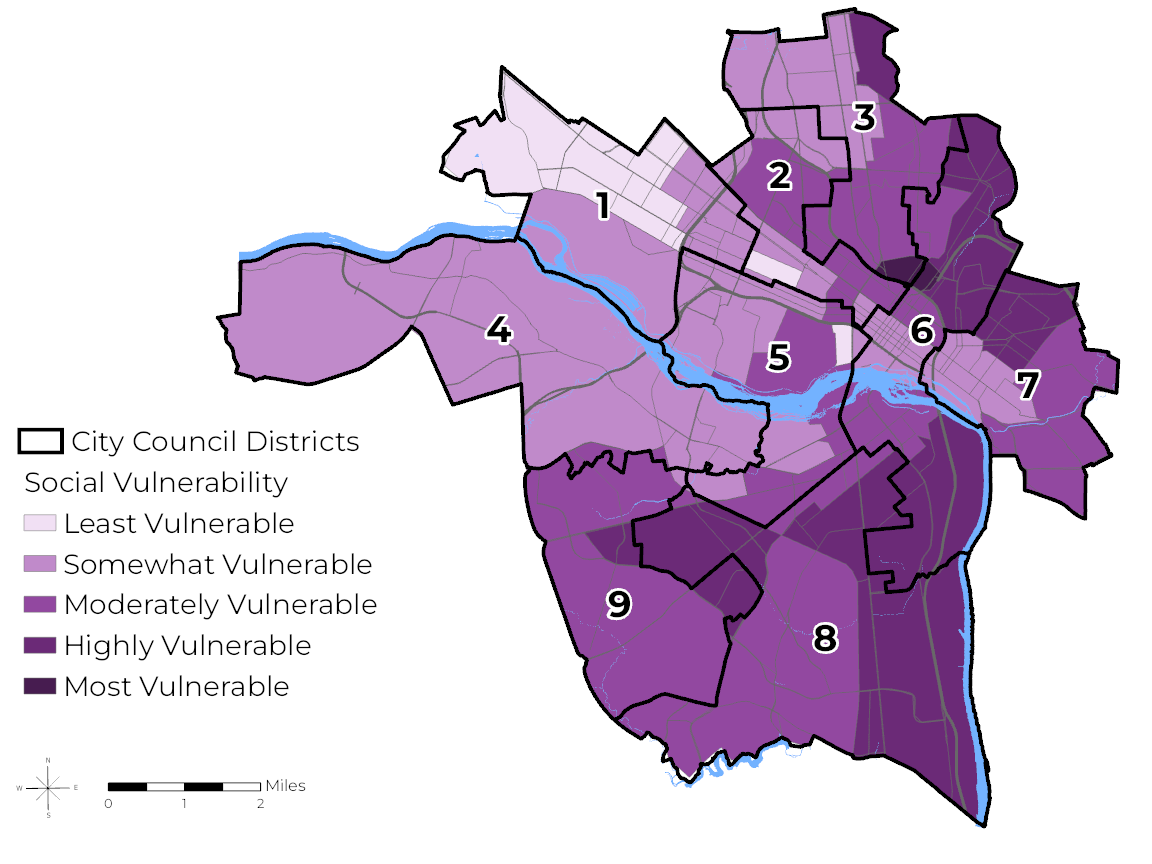Climate Equity Index
The RVAgreen 2050 Climate Equity Index (CEI) is an interactive tool created by the City of Richmond Office of Sustainability to explore your neighborhood’s climate impacts, demographics, built assets, and natural resources
Use the CEI
Visit this link to use the Climate Equity Index

Watch the Tutorial
Watch this tutorial to get the most out of the innovative Climate Equity Index tool.
{"preview_thumbnail":"/sites/default/files/styles/video_embed_wysiwyg_preview/public/video_thumbnails/iNWkmZxY0Sk.jpg?itok=761n7VQz","video_url":"https://youtu.be/iNWkmZxY0Sk","settings":{"responsive":0,"width":"620","height":"320","autoplay":0},"settings_summary":["Embedded Video (620x320)."]}
Climate Equity Index Social Vulnerability Analysis Factors
Based on examples from peer cities’ social vulnerability analyses, the 39 factors were combined using a statistical methodology to determine relative vulnerability to climate change impacts at the census tract level.
vulnerability to climate change impacts at the census tract level.
This social vulnerability map visualizes this relative vulnerability across Richmond’s census tracts. The map provides an objective and quantitative way to begin identifying the communities on the frontlines of climate change - those who are being impacted first and worst
Use RVAgreen 2050 Climate Equity Index to explore the demographic, health, and other factors affecting Richmond neighborhoods’ potential vulnerability to crises such as climate change.
Vulnerability Factors
Health & Safety:
Health Opportunity Index, Disabilities, Obesity, Asthma, COPD, Coronary heart disease, High Blood Pressure, Kidney Disease, Poor mental health (self-assessed), Poor physical health (self-assessed), Uninsured, Low food access, Crime
Income & Education:
Poverty, Work outdoors, SNAP/food stamps, Public assistance income, Housing costs >30% of income, No high school diploma, Unemployment, Housing Choice Voucher program participant
Housing & Transportation:
Multi-unit structures, Mobile homes, Crowding, No vehicle access, No central air conditioning, Emergency housing, Group homes, No internet access
Population:
Elderly (65+), Children (under 18), Race and ethnicity, Female, Limited English Proficiency
Household:
Single-parent households, Custodial grandparents, Renters, Elderly living alone







